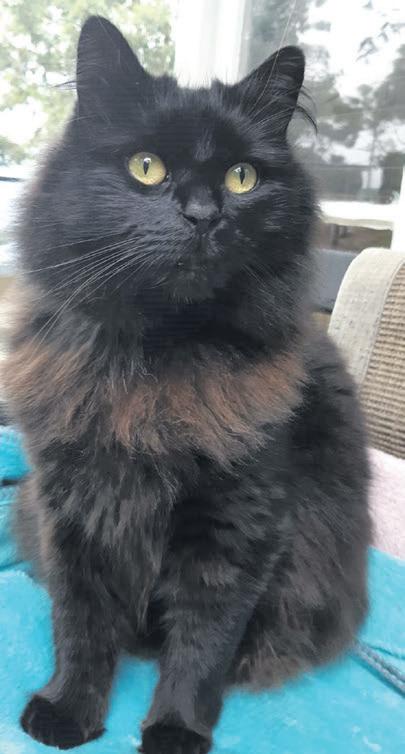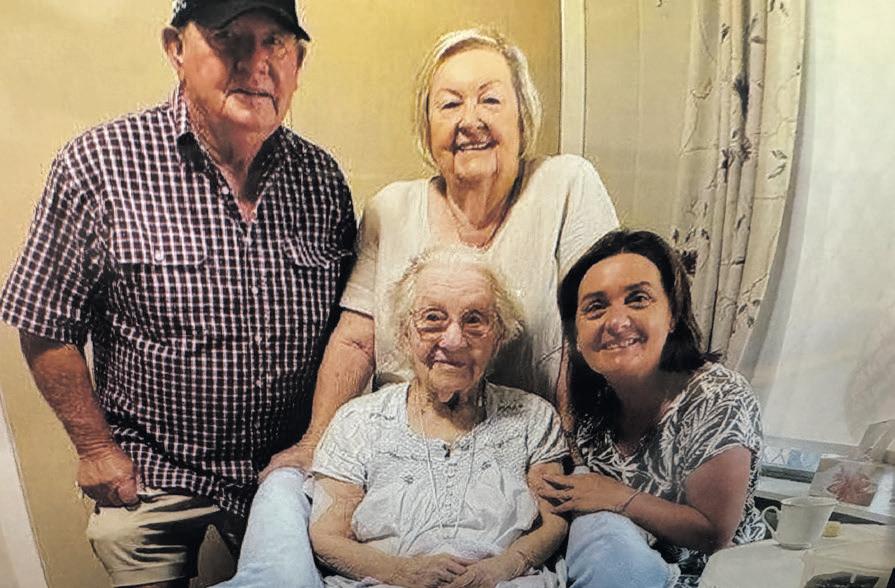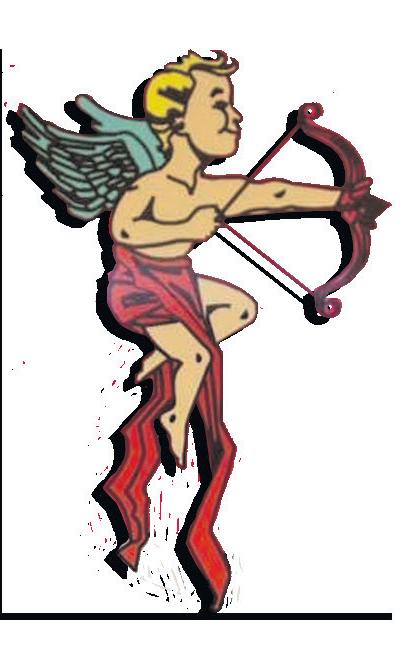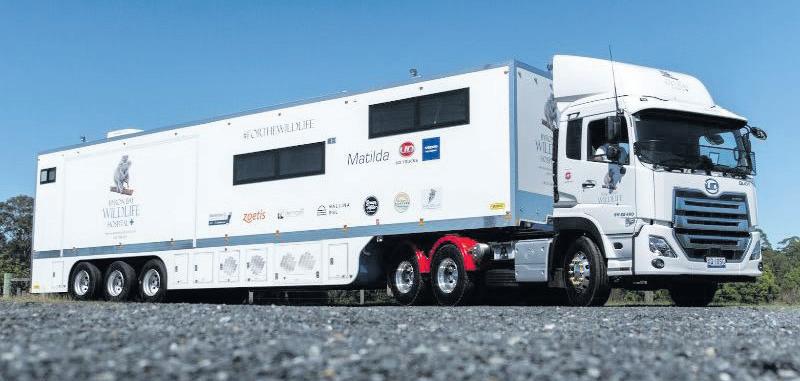
10 minute read
Northern NSW hospitals perform well through busy winter period
“Leemo has views on just about anything”
“THE TRAVELLING FELINES TROUPE”
‘Mum Jane’, did you know that making someone smile & laugh can change their mind & way of thinking sometimes?’ It’s ‘Leemo Cat’ writing and I have astutely noticed that Mum’s general ‘good moodiness’ seems to have been lost somewhere of late. anks to my avid reading and comprehension of the unpredictable behaviour of humans, I decided it would be a most positive move to make her laugh. I suggested she sit down & relax and ‘cos it’s a er 5pm she can have a glass of wine & some cheese & stu . ‘OK, here’s how it will go Mum. I & my buddies are going to put on a kinda concert for you to cheer you up, ‘cos everyone loves musical interlude in their day. THEN Mum, our ‘Travelling Felines Troupe’ will visit all our Troupes houses and entertain THEIR humans.’ Hmmm? No smiles at this point, but then again, we hadn’t even begun. I waved my baton imperiously and shouted ‘Let’s go Troupe; we’ll open with a few rhymes sung to the tune of ‘Click Go the Shears Boys’, OK?
First one: “We are 8 ni y felines with quite a few vices, we frisk, and we play and we eat rats and mices” then “ e lion is very erce and his teeth can easy pierce, the skin of the Postman’s knee. It serves him right though, that ‘COS OF HIS BITE, he never gets letters you see” then “I’m not scared of Pussy Cats, they only eat up mice and rats, but I’m a HIPPOPOTAMUS and could easy eat the lotofus” then “8 hungry felines sitting down to lunch, gobble gobble gobble, munch munch munch.” Intermission: I glanced at Mum’s face; I noticed her crossed eyes & slightly dumbfounded look on her face & appreciated she was no doubt overcome with awe. THERE WAS ALSO a hint of a wee smile. YIPPEEE goodie, it’s working!! I waved my baton happily. ‘OK Mum, we did have some help with our rhymes via the Milligan family Inc. HOWEVER, we wrote the following one all by ourselves just for our humans’. “We are 8 ni y felines, who live up on a hill. We love climbing trees & stu , just for the thrill. We do like watching ‘Bluey’ and getting lotsa treats, which reminds us RIGHT NOW, it MUST be time to eat?”
(hungry Miaooow chorus) We cunningly built this line into our rhyme as a hint for Mum to get up and bring us treats. She didn’t even BUDGE? Crikey! ‘Alright then Mum, we’ll do ONE MORE of our original rhymes but then we MUST have sustenance. Gottit? My baton wooshed with gusto. Finale: (We were in robust form, in expectation of delicious treats!) OK, let’s GO! “We are called the “Travelin Cats” we trill our rhymes ‘bout this and that. We wander o’er both hill and dale, imparting cheer without the Ale. People clap and cheer and stu , like they just can’t get enu oooh…we were about to continue our rhyme when Mum put her hand in the air like a Judge on ‘Britain’s Got Talent’. Hmmm! She spoke. ‘OK guys, time up! Just chill whilst I throw together a ne feast for you; give me 3 minutes, OK?’ Yippee! She continued. ‘HOWEVER, my very special buddy Audrey would just adore for you all to go sit outside her house and troubadour herself and her neighbours. OK? I’ll drop you o and pick you all up a er Christmas.’ Hmmm! We’ll have to have a special meeting to discuss this proposal; will Audrey provide treats? Nitey, Leemo & Buddies.
Northern NSW Local Health District (NNSWLHD) hospitals continued to reduce the overdue planned surgery wait list despite sustained high activity in emergency departments (EDs) throughout winter, according to the latest Bureau of Health Information Healthcare Quarterly report.
Northern NSW Local Health District’s Chief Executive, Tracey Maisey, said the results are a refection of the continued hard work of staff across the District during the July to September quarter in 2023.
“There were 54,204 attendances to NNSWLHD EDs, an increase of 2.1 per cent, or 1,134, more attendances than for the same quarter in 2022. There were also increases in presentations across all triage categories,” Ms Maisey said.
“More than seven in 10 patients (75.3 per cent) started treatment on time and eight in 10 patients (80.1 per cent) were transferred from ambulance to ED staff within the 30-minute benchmark, which are both better results than the NSW state average.”
All patients are seen and triaged on arrival at the ED and, as always, the most seriously unwell patients are treated frst. During busy times, those with less urgent conditions can experience longer wait times when there are large numbers of seriously unwell patients being prioritised for emergency care.
Across the District, there were 3,770 planned surgeries performed during the quarter.
The majority of all planned surgeries, including 95.5 per cent of urgent planned surgeries, were performed on time. The percentage of semiurgent and non-urgent planned surgeries performed on time also improved by 4.9 and 12.6 percentage points respectively, compared with the same quarter in 2022.
Over the past year, NNSWLHD reduced the number of patients waiting longer than clinically recommended for planned surgery by 55.1 per cent, from 1,580 at the end of September 2022 to 709 at the end of September 2023.
Any patient who feels their condition may have deteriorated while waiting for their surgery is encouraged to contact their treating doctor who can review their condition and place them in a higher urgency category, if appropriate.
NNSWLHD continues to remind everyone to support us by saving emergency departments and ambulances for saving lives. If an illness or injury is not serious or life-threatening, we encourage people to call Healthdirect Australia on 1800 022 222, for 24-hour telephone health advice.
INDIVIDUAL HOSPITAL RESULTS
BALLINA DISTRICT HOSPITAL had 4,345 ED attendances during the quarter. The majority of patients (69.5 per cent) started their ED treatment on time. More than seven in 10 patients (75.8 per cent) left the ED within four hours. More than eight in 10 patients (83.4 per cent) were transferred from ambulance to ED staff within the 30-minute benchmark.

BYRON CENTRAL HOSPITAL had 5,262 ED attendances throughout the third quarter of 2023. The majority of patients (86.1 per cent) started their ED treatment on time and almost eight in 10 patients left the ED within four hours of arriving. More than nine in 10 patients (94.5 per cent) were transferred from ambulance to ED staff within the 30-minute benchmark.
CASINO & DISTRICT MEMORIAL
HOSPITAL had 3,219 ED attendances in the quarter. The majority of patients (75 per cent) started treatment on time and more than eight in 10 patients (84.5 per cent) left the ED within four hours of arriving. More than nine in 10 patients (93.5 per cent) were transferred from ambulance to ED staff within the 30-minute benchmark.
GRAFTON BASE
HOSPITAL had 6,732 ED attendances during this quarter. The majority of patients started treatment on time and more than seven in 10 patients (70.7 per cent) left the ED within four hours. More than eight in 10 patients (83 per cent) were transferred from ambulance to ED staff within the 30-minute benchmark.
LISMORE BASE
HOSPITAL had 10,050 ED attendances during the quarter, which is a 5 per cent increase compared with the same time last year. The majority of patients (63.6 per cent) started their treatment on time. The majority of patients also left the ED within four hours of arriving (55.2 per cent), which is better than the average for hospitals of a similar size in NSW.
MACLEAN DISTRICT HOSPITAL had 3,790 ED attendances during the quarter. More than eight in 10 patients (82.8 per cent) started their treatment on time. Almost nine in 10 (88.7 per cent) of patients left the ED within four hours. Nine in 10 patients were transferred from ambulance to ED staff within the 30-minute benchmark.
MURWILLUMBAH DISTRICT HOSPITAL had 4,814 ED attendances during the quarter, an 8 per cent increase compared with the same time last year. The majority of patients (82.1 per cent) started their treatment on time, which is signifcantly better than the average for hospitals of a similar size in NSW. More than eight in 10 patients (84 per cent) left the ED within four hours of arriving. Almost all patients (95.8 per cent) were transferred from ambulance to ED staff within the 30-minute benchmark.
THE TWEED
HOSPITAL had 13,799 ED attendances during the quarter. More than eight in 10 patients (80.3 per cent) started their treatment on time, which is signifcantly better than the average for hospitals of a similar size in NSW. Almost seven in 10 patients left the ED within four hours of arriving, and more than eight in 10 patients (82.4 per cent) were transferred from ambulance to ED staff within the 30-minute benchmark.

Bored, bored, bored… by Nigel Dawe

ONE of the all-time great social observances, that directly loops back onto itself as a gloriously scathing critique, was made by the German cultural icon - Johann Wolfgang von Goethe, who once noted, “If monkeys could reach the point of being bored, they could become human beings.”
Forget about reading or writing, flying jet planes, algebra or adding to the field of quantum physics; having the capacity to be bored is quite possibly the most original way to differentiate the human being from every other animal on Earth. For the creature most known for its grey matter, that we often easily descend into the depths of boredom is a puzzling reflection of our cognitive mettle.
I’d be fascinated to know if boredom (itself only a relatively modern term that stems from the 1760s by referencing a kind of drill called a ‘boring tool’ - that worked slowly and repetitively) was something our cave dwelling ancestors ‘suffered’ from. I have a hunch it is an affliction of pure affluence and a chronic need to be constantly entertained, made to feel important, or stimulated.
But that said, and like The Skyhooks noted of the ego - that it’s “not a dirty word”, I also think that boredom is not a dirty word either. I personally buy into the notion of Walter Benjamin, who suggested, “Boredom is the dream bird that hatches the egg of experience. A rustling in the leaves drives him away.” So, instead of being a state that closes in on us or shuts us down, boredom can well be a reference or departure point for self-awareness, reflection and appreciation.
Going a few leaps further but in the very same direction, the Russian Nobel Prizewinner Joseph Brodsky once surmised, “Boredom is your window on the properties of time that one tends to ignore to the likely peril of one’s mental equilibrium.
It is your window on time’s infinity. Once this window opens, don’t try to shut it; on the contrary, throw it wide open.” Or in other words, know exactly where to look, or what to look for when monotony seems to stifle and close off every outlet to purpose in your world.
Making something of our circumstances, regardless of how tedious they might seem, is the gauntlet that boredom affords us. The challenge is entirely ours - to not succumb to the easy temptation of being bored, and meagrely tiring of whatever we are in the presence of.

As Saul Bellow once said, “Boredom is the conviction that you can’t change…the shriek of unused capacities.” It is also the raw admission of a defeated mind, defeated before it has even tried to fight its way out of not needing to be so preoccupied by the shallow fodder of mass cultural distraction.
As if he were offering a solution and a warning, if not a very accurate diagnosis way ahead of his time, the myriad-minded Bertrand Russell discerned, “One of the surest signs of a second-rate mind is lack of courage to be boring, which grows more common as the public grows less willing to be bored.”
“Matilda”, a unique wildlife hospital hauled by a UD Truck is preparing for the worst as the Bureau of Meteorology (BOM) forecasts increased risk of bushfres in eastern Australia due to reduced rainfall, high fuel loads and above average temperatures.
“We built Matilda three years ago through public support and a successful fundraising campaign,” said Founder and CEO Dr Stephen Van Mil.
“The world saw the terrible images of burned koalas in laundry baskets during Australia’s catastrophic Black Summer Bushfres.”
“WWF Australia estimated that three billion animals died in that horrifying natural disaster. It’s impossible to get your head around the scale of that loss. We vowed to never again allow that to happen, which is why we are preparing for the worst.
We’ve treated over 5000 animals since opening in 2020. We have a crisis operations plan for deployment, and unique capacity to save wildlife during a bushfre, food or other natural disaster. We have written to every level of government including the Prime Minister offering our services. We hope they call us to help. It will be dreadful to receive a call from Emergency Incident Controllers, but that’s what we are here for. We’re ready.”
Matilda is wholly owned by Byron Bay Wildlife Hospital, the only all-species wildlife hospital in NSW outside of Taronga Wildlife Hospitals. Licensed by the Veterinary Practitioners Board of NSW, BBWH is open 7 days a week and provides full veterinary hospital services exclusively for sick, injured, and orphaned wildlife, free of charge. Through a partnership with UD Trucks Australia, Matilda can be mobilised to travel to the scene of a natural disaster such as a bushfre, food, mass stranding or oil spill affecting wildlife on a large scale. The hospital has all the veterinary equipment and supplies needed to triage, treat, and carry out lifesaving surgery on sick and injured wildlife. The mobile hospital is equipped with a satellite dish, solar panels, onboard water and deep cell batteries to operate self-suffciently for an extended deployment to a disaster zone.
“Sustainability and environmental care are at the heart of everything we do, both at UD Trucks and as a part of Volvo Group Australia” said UD Trucks Vice
President
“This is powered by one of the cleanest, most fuel effcient and safest trucks on the road today, the UD Quon, which is entirely ftting given its mission.”

“The partnership between Byron Bay Wildlife Hospital and UD Trucks is incredibly important. We are facing a dangerous summer in terms of fre risk, and I think the work that the BBWH team does is sadly becoming increasingly important as the effects of climate change become more extreme.”
“We’re working closely with The Wildlife Hospital team to prepare for and assist with their deployment, and we stand ready with BBWH to proactively respond to help wildlife the minute it is needed.”










